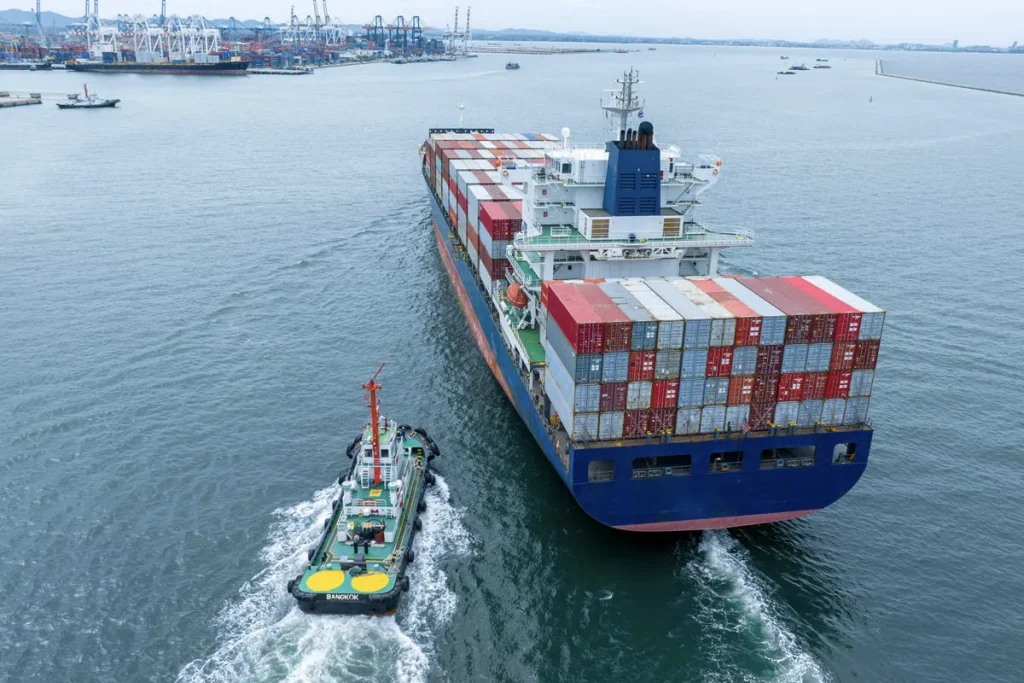Maritime transport is the backbone of the global economy. Today, approximately 90% of the world’s goods are transported by sea, including raw materials, food products, and manufactured goods. This fact highlights the critical importance of the sector, but it also brings a series of risks and challenges that shipowners, port operators, and insurers must address.
The Impact of Increasing Ship Size
With the introduction of standardized containers, the maritime sector has made great strides in efficiency. However, the growing size of vessels has also introduced new risks. Ports, canals, and handling facilities must adapt to these mega-ships, but they are often not designed to handle such massive loads. Just consider the Ever Given incident in the Suez Canal, which blocked one of the world’s most important maritime routes for six days, causing massive economic losses.
Additionally, the increasing logistical complexity associated with larger vessels involves:
- Longer port waiting times
- Risk of structural damage to piers and cranes
- Challenges in coordinating ship arrivals and departures
Even bridges with limited clearance and insufficient turning basins can present significant obstacles, forcing ports to undertake costly infrastructure upgrades.
Shipping Delays: A Costly Risk
Delays in maritime transport can lead to substantial economic losses for operators and companies that rely on just-in-time supplies. The COVID-19 pandemic highlighted just how vulnerable the sector can be to supply chain disruptions, with overloaded ports and ships waiting for days or even weeks.
Delays can be caused by:
- Port congestion
- Adverse weather conditions
- Technical problems or accidents
- Natural disasters
These events not only cause direct losses, but can also disrupt entire supply chains, affecting production and distribution on a global scale.
New Strategies to Mitigate Delays
To mitigate the risks associated with delays, many companies are rethinking their supply chains. Some of the most common strategies include:
- Supplier Diversification: Reducing reliance on single, distant suppliers to avoid prolonged disruptions.
- Higher Safety Stock: Maintaining additional inventory to offset potential delays.
For example, PortaleGenio offers detailed visualization of connections between ports, terminals, and dry ports, allowing operators to optimize transit times and reduce the impact of delays.
Decarbonization of the Maritime Sector
With 2-3% of global CO₂ emissions attributed to the maritime sector, the pressure to reduce its environmental impact is increasing. The Poseidon Principles for Marine Insurance represent an important step in this direction. This framework is designed to integrate climate considerations into insurance decisions, promoting greater transparency and environmental responsibility.
Innovations to reduce emissions include:
- Alternative fuels like Liquefied Natural Gas (LNG) and hydrogen
- Advanced hull designs to reduce drag
- Air lubrication technologies to improve energy efficiency
- Hybrid systems that combine diesel engines and lithium-ion batteries
Additionally, solutions like rigid sails and Flettner rotors are gaining popularity as complementary technologies to reduce fuel consumption.
Conclusions
The maritime transport sector stands at a critical crossroads. On one hand, it must continue to The maritime transport sector is at a critical crossroads. On the one hand, it must continue to meet the growing global demand for goods; on the other, it must reduce its environmental impact and improve operational resilience.
Informational tools like PortaleGenio can support this transition, providing insights and data, and, through the visualization of intermodal routes, contribute to greater supply chain efficiency.
By adopting sustainable technologies and innovative strategies, the maritime industry can not only address the challenges of the present, but also prepare for a greener and more connected future.
Sources:
- 2024 sector data on logistics and maritime transport
- Global Maritime Forum Reports
- Poseidon Principles for Marine Insurance – Official documents
- Technical insights on sustainable shipping technologies

